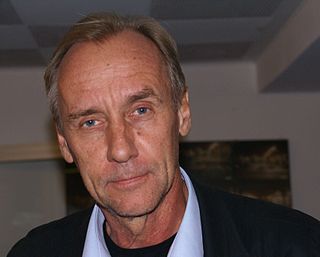A Quote by Hakan Nesser
While I'm writing, I'm also the first reader, and I want to write a book where I'm excited about what happens next.
Related Quotes
Write what you want to read. So many people think they need to write a particular kind of book, or imitate a successful style, in order to be published. I've known people who felt they had to model their book on existing blockbusters, or write in a genre that's supposed to be "hot right now" in order to get agents and publishers interested. But if you're writing in a genre you don't like, or modeling yourself on a book you don't respect, it'll show through. You're your first, most important reader, so write the book that reader really wants to read.
My writing knows more than I know. What a writer must do is listen to her book. It might take you where you don’t expect to go. That’s what happens when you write stories. You listen and you say ‘a ha,’ and you write it down. A lot of it is not planned, not conscious; it happens while you’re doing it. You know more about it after you’re done.
The first rule is you have to create a reality that makes the reader want to come back and see what happens next. The way I tried to do it, I'd create characters that the reader could instantly recognize, and hopefully bond with, and put them through situations that keep the reader on the edge of their seat.
The process for writing a picture book is completely different from the process of writing a chapter book or novel. For one thing, most of my picture books rhyme. Also, when I write a picture book I'm always thinking about the role the pictures will play in the telling of the story. It can take me several months to write a picture book, but it takes me several years to write a novel.
I love to write, so I think writing would be the next natural step. And if I'm making something that I'm writing, it would also probably make sense to be a producer and have some creative input from that perspective as well. Eventually, I do want to direct, but I want to get comfortable in those two jobs first. I want to dip my foot into this pool before I dive in I guess.
































